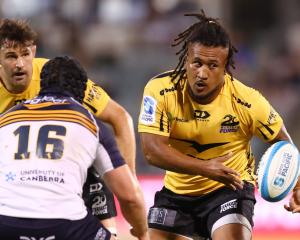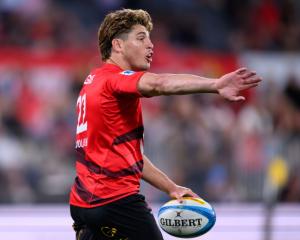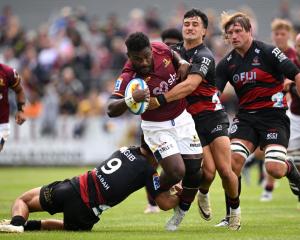Quin (51), the business manager at car dealership Armstrong Prestige, was appointed to the board at the union's annual meeting on Monday night. He will be on the board for no set term but, under the constitution, the longest serving two members are up for reappointment every year.
Quin replaces John Faulks, who did not seek another term, while Andrew Rooney will continue as a board member.
Quin was born and bred in Dunedin, attending The Taieri High School, and is still connected with rugby on the plain.
He is the vice-president of the Taieri club but said with his appointment to the board he would be resigning that position.
Quin said Otago rugby had been dear to his heart for a long time.
''I did some voluntary work for them last year and want to continuing helping out. When I was living overseas or back in Wellington I always followed how Otago was going,'' he said.
''The whole thing with Otago rugby is it is about being sustainable. From my perspective, I am more than happy to get involved. I am positive about the way forward for rugby in Otago.
''It is a new era for Otago rugby now. It is going to be a challenge but a positive challenge that I want to work with.''
Quin said the way clubs supported affiliation fees being introduced was a good sign that everyone involved in the sport in Otago was committed to the financial health of the union.
He said the key was to get sustainable revenue streams for the union.
Quin brings financial skills to the union, having worked in banking in Singapore, London, Sydney and Wellington for more than 25 years before moving back to Dunedin five years ago.
He has two daughters, Kenya (18) and Rebecca (17).
Meanwhile, any hope of getting a dividend from the Highlanders to help the finances of the Otago Rugby Football Union appears unlikely.
After he was asked whether the union could receive any money from the Highlanders on Monday night, Otago union chairman Doug Harvie said that was not likely in the foreseeable future.
The Highlanders had loans owing to the New Zealand Rugby Union and had to pay those back before any thought was given to paying a dividend.
The Highlanders made a profit of just over $70,000 last year.












